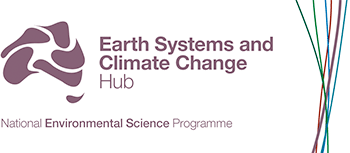14 September 2020
The industry-led Climate Measurement Standards Initiative (CMSI) has today released a set of open-source scientific and technical guidelines that will provide Australian banks, financial institutions and insurers with consistent guidance for voluntary use on how to assess the risk of climate-related damage to their buildings and critical infrastructure.
The CMSI has been designed specifically to support the recommendations of the Task Force on Climate-Related Financial Disclosures (TCFD) for disclosing the physical risks and investment opportunities associated with climate change.
Both scientific and financial guidelines were produced under this initiative. The scientific guidelines consider future physical climate change risks that are chronic (gradual changes to temperature, rainfall, sea level rise, etc) and acute (tropical cyclones, extreme rainfall, storm surge, bushfire, etc) for the general insurance, banking and asset owner sectors for the years 2030, 2050 and 2090. The guidelines cover two scenarios: global warming below, and above, two degrees Celsius.
The financial disclosure guidelines aim to increase our ability to understand and plan for climate change by improving the comparability of standardised climate-related financial impact disclosures by banks, insurers and asset owners. Broadly, the guidelines recommend disclosures should be made for 2030 and 2050, with consideration for shorter time frames aligned with business planning and 2090 if relevant. When material to the business, the CMSI guidance suggests disclosures should be split up by portfolio, by hazard and by geographic region. Specific accounting items and metrics should be disclosed, in line with existing financial reporting accounting standards, and disclosures should describe both the confidence and uncertainty in the critical assumptions made around the use of the science.
The Earth Systems and Climate Change Hub played an instrumental role in this initiative, guiding the input and expertise of Australian climate scientists across the Hub’s partners to frame and enable the application of robust, peer-reviewed science-based evidence to inform industry risk and associated decision-making.
Participation in the CMSI co-production process has provided the Hub’s climate scientists with a unique and valuable opportunity to collaborate with experts from the financial services sector to explore and analyse the utility of the ‘best available science’ in assessing climate-related risks to Australian buildings and critical infrastructure.
To read more about the CMSI, including the scientific and technical guidelines, visit the CMSI website.
Participation in the CMSI by the Earth Systems and Climate Change Hub was provided under Case Study 5.6: Climate Measurement Standards Initiative.

